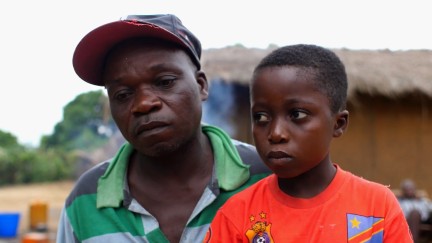Accompanying licensing agreements with technology transfers to manufacturers
Date
15 November 2022
Bristol Myers Squibb, Gilead, GSK
Brazil, China, Egypt, India, Pakistan, South Africa
Infectious diseases (HIV, hepatitis C, COVID-19)
Voluntarily licensing products to manufacturers in low- and middle-income countries (LMICs) in combination with a technology transfer
To build manufacturing capacity and increase affordability of products, improving access to treatments for infectious diseases in LMICs
When companies choose to engage in technology transfers with licensees, they can improve and speed up regional availability of medicines, while building manufacturing capacity that can be used for the future production of medicines. Bristol Myers Squibb, Gilead and GSK (via its majority-owned business specialising in HIV products, ViiV Healthcare) stand out for voluntarily licensing some of their products, while also supporting local manufacturers to build technical capacity through technology transfers.
Expanding accessibility through NEVLs
Gilead leads in this area, working since 2006 to voluntarily license almost all its on-patent products in scope of the Index, including carrying out extensive technology transfers to generic manufacturers. The company has NEVLs covering its hepatitis C and HIV treatments, which include ten products. For example, its voluntary licence for its HIV medicine tenofovir disoproxil fumarate (TDF) includes technology transfer agreements with generic manufacturers.
In 2020, the company agreed a new NEVL for remdesivir (Veklury®), a medication for COVID-19. It now licenses or sub-licenses medicines to more than 25 third-party manufacturers in LMICs. Gilead reports that it initiates technology transfer ahead of regulatory approval and provides ongoing assistance to support product safety and stability after the technology transfer is complete. It also partners with the Medicines Patent Pool (MPP) for licences for tenofovir alafenamide, bictegravir, cobicistat, elvitegravir and emtricitabine, all of which are compounds for products targeting HIV.
Outcomes are measured by external stakeholders including governments, generic manufacturers, the World Health Organization (WHO), donors, clinicians, medical providers and patients. Reported short-term outcomes of the approach include quality assurance and market registration. Medium- and long-term outcomes include the inclusion of TDF in treatment guidelines and data on the procurement of generic TDF 1. A 2019 study 2 evaluated how NEVLs for hepatitis C medicines from Gilead and from Bristol Myers Squibb affected access to treatment. Importantly, this looked at patient reach, and found that NEVLs were associated with a significant increase in numbers of people accessing treatment.
Bristol Myers Squibb also works with the MPP and both it and ViiV Healthcare combine NEVLs with technology transfers and partner to build capacity. In 2011 Bristol Myers Squibb began the technology transfer for its product atazanavir (Reyataz®), transferring manufacture and distribution to an R&D biological science institution based in Rio de Janeiro, the largest official pharmaceutical laboratory of Brazil’s Ministry of Health and to Nortec Quimica, a local manufacturer of active pharmaceutical ingredients.
ViiV Healthcare has three NEVLs in place with the MPP for HIV products. Beginning in May 2017, GSK (through ViiV Healthcare) has partnered with the Clinton Health Access Initiative to establish two public-private partnerships for supply and use in LMICs. Each partnership works with two generic manufacturers with paediatric voluntary licences to expedite the development and market entry of more affordable generic child-friendly formulations of dolutegravir and the fixed-dose combination product abacavir/lamivudine/dolutegravir (ALD).
More local partnerships needed to drive progress
When considering whether and how to license their products to manufacturers in LMICs, companies should consider the local and regional availability of their medicines as well as future manufacturing capacity.
Currently, only a few examples of NEVLs in the Index are supported by technology transfer packages, and most activity centres on priority infectious diseases. The Index encourages companies to consider how to combine these measures and apply the approach across multiple therapeutic areas. Companies also need to be fully compliant and transparent about their commitments and are encouraged to partner with other stakeholders.
References
1 Wirtz V, Ray M, Rockers P, Laing R. Evaluation of the Gilead Access Program; 2020. https://sites.bu.edu/accessanalytics/files/2021/07/BU-Gilead-Report.pdf
2 Simmons B, Cooke G, Miraldo M. Effect of voluntary licences for hepatitis C medicines on access to treatment: a difference-in-differences analysis. Lancet Glob Health. 2019. https://pubmed.ncbi.nlm.nih.gov/31362914/
